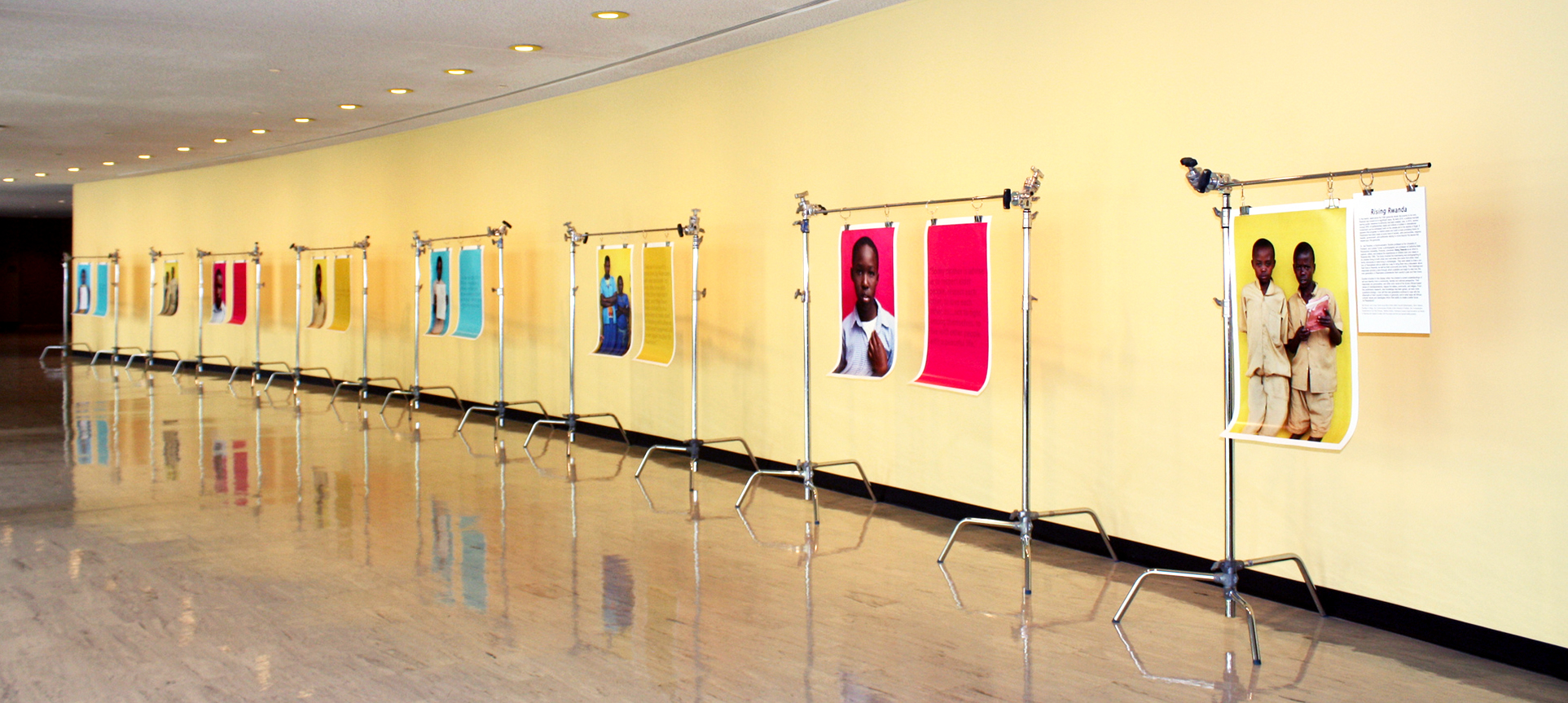

Telling a story of identity and culture in a post-genocidal Rwanda
An effort to understand and define the underlying tone of the first post-genocide generation in Rwanda.
Rising Rwanda
- Article
- By Lorena Turner and Courtney Vail Fletcher
Rising Rwanda is a documentary project that intertwines photography, video and in-depth interviews to tell a story of identity and culture in a post-genocidal Rwanda. The project was designed to capture the visual and aural narratives of 35 children, ranging in age from six to fifteen, in an effort to understand and define the underlying tone of the first post-genocide generation in Rwanda. The children, who were representative of multiple social and economic backgrounds, were asked to draw pictures that portrayed them engaging in an activity with someone they respect.
Lorena Turner creates image-based projects that combine text, interviews, and video, which tell stories related to identity and self-perception, immigration, ethnic politics, and consumer culture. Her work has been shown nationally and internationally. Lorena received her MFA from the University of Oregon, and teaches photojournalism in the Communication Department at California State Polytechnic University in Pomona, California. She is based in Los Angeles, California and Brooklyn, New York.
Courtney Vail Fletcher, Ph.D., is an Assistant Professor in the Communication Studies Department at the University of Portland in Oregon. Courtney is a social scientist who examines the intersections of identity, culture, conflict, and communication using a variety of methodological approaches. She is particularly interested in investigating stories of identity shift and displacement using visual communication. Courtney lives in Portland, Oregon.
Photos
